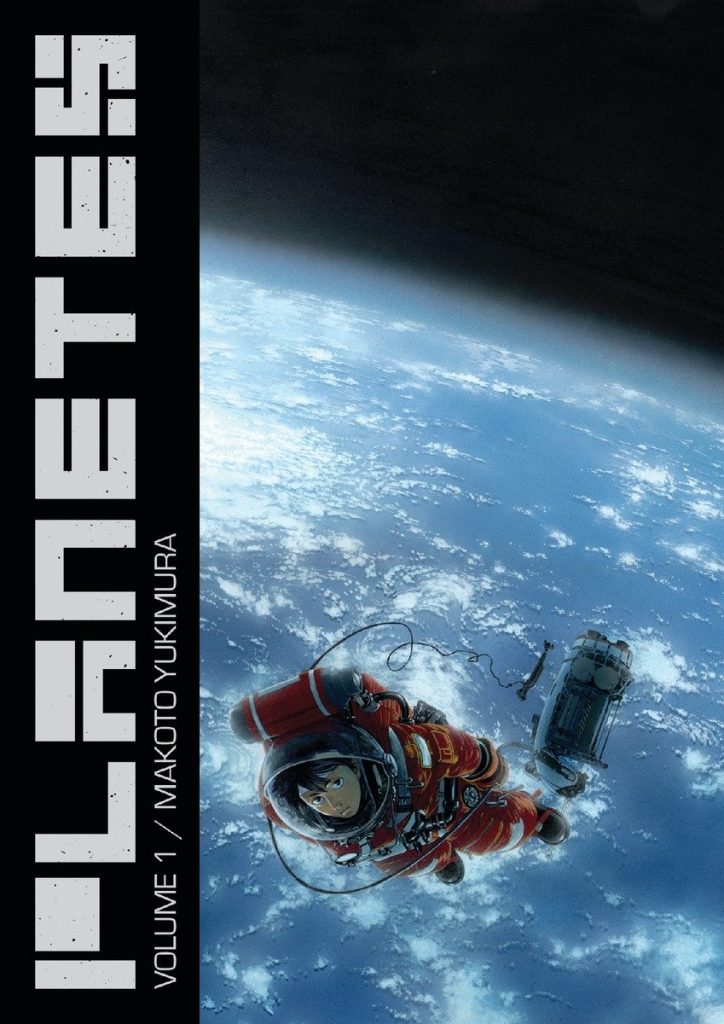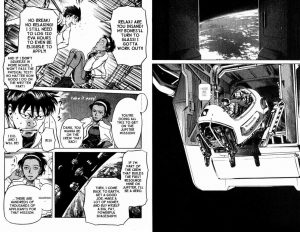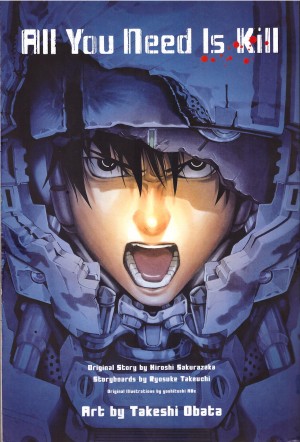Review by Frank Plowright
Well beyond their Western counteroarts, Japanese comics cover a vast variety of topics and moods, but even now the material translated into English is rarely reflective and observational. The 26 chapters of Makoto Yukimura’s Planetes were previously lost in Tokyopop’s vast list where little adopted that tone. However, readers who discovered the series were treated to a very personal rumination on humanity and social wellbeing.
The key to enjoyment is following where Yukimura leads without bringing your own expectations. It’s a great journey providing considerable satisfaction, but on Yukimura’s terms. Although largely set in space, featuring a war in passing, and several other conflicts, there is no bombast, and often no answer, just something to consider.
Yukimura starts in 2074 on the DC-12 spacecraft tasked with clearing up the junk that’s orbiting around Earth. It’s a potentially dangerous task, yet not highly regarded, and three of the crew are characters important to the overall series. After an ensemble introduction there are some engaging detours, but it’s Hachi who becomes the prominent character, seen not only in space, but back on Earth with his family and friends. Care is taken to build supporting characters, to make them likeable even if their overall purpose is small. Hachi’s younger brother and his rocket obsession is one example, but there are many others. Hachi himself progresses considerably. At first he’s not even sure he wants to remain in space, but is fired by the thought of improving his station and participating in a proposed mission to Jupiter.
Science is important to Planetes, with Yukimura’s research included. His art provides an interesting contrast. His people are warm, and slightly sketchy, whereas his technology is ruler straight and precise, every conceivable detail present. It means the art matches the theme, which despite the technology and science is that of humanity. Every issue considered over the 26 chapters, and there are plenty, is considered in human terms. For instance: does achievement mean sacrificing caring and love? As with so many big questions, there’s no one answer applicable to everyone, just an answer that best suits an individual. A concern over the earlier chapters is eco-terrorists, and we come to understand their views, if not condoning their methods. This emphasis on feeling and ethical issues perhaps makes Planetes sound dry, which isn’t the case. Yukimura can switch from domestic comedy to high tension very rapidly, and many moods combine. One of the most gripping chapters is when Hachi and a colleague make a forced landing on a planet with their oxygen running low. There’s a slim chance of survival resting on their being able to maintain an average speed of 4.5 kilometres an hour to reach a settlement, but that may not be possible.
As this volume concludes Hachi’s having considerable trouble coming to terms with conflicting emotions. It’s heartbreaking to see this in a character we’ve watched grow and mature, his spiritual awareness increasing, but now in effect having a breakdown. It leads to a glorious resolution near the start of the second Omnibus, after which Hachi’s presence fades considerably.




